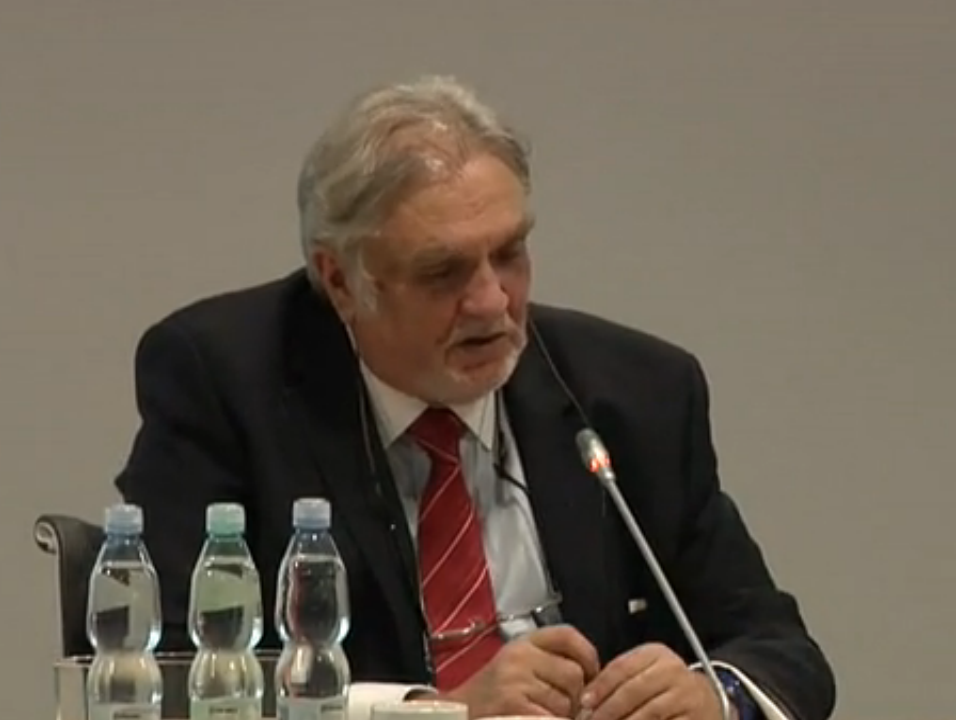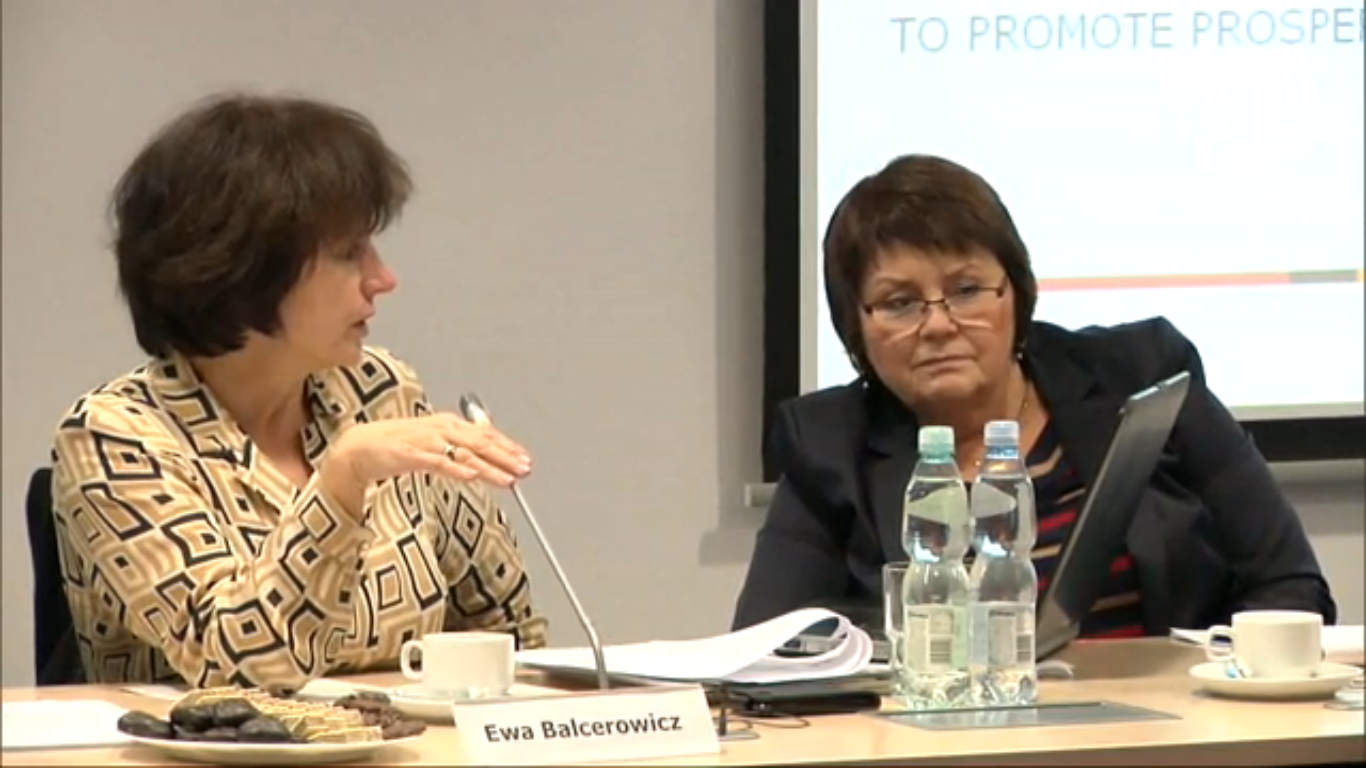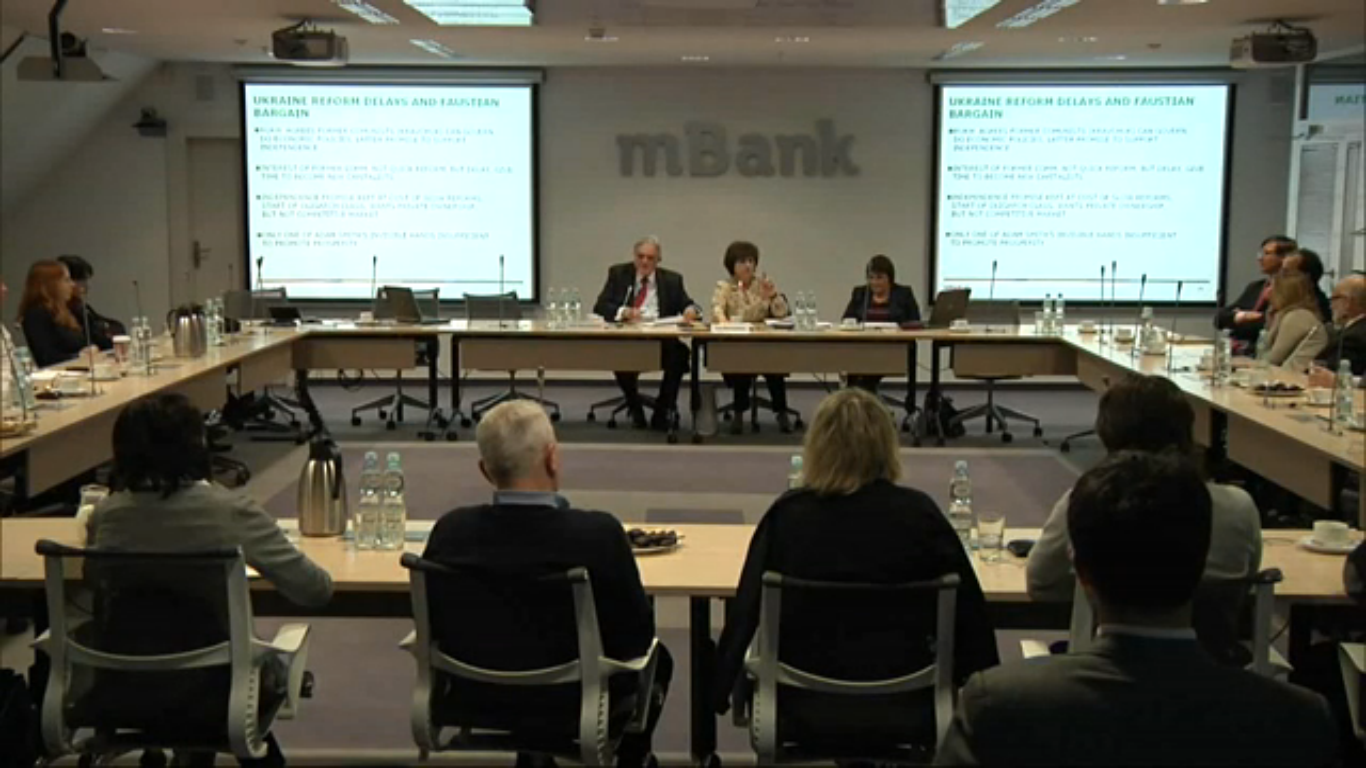A quarter century of economic reforms in Ukraine: too late, too slow, too little
 On Thursday 18th of December, the final mBank-CASE seminar in 2014: ‘A quarter century of economic reforms in Ukraine: too late, too slow, too little’, took place. Our keynote speaker was Oleh Havrylyshyn, a professor of Ukrainian descent working at Toronto University and the Joint Vienna Institute.
On Thursday 18th of December, the final mBank-CASE seminar in 2014: ‘A quarter century of economic reforms in Ukraine: too late, too slow, too little’, took place. Our keynote speaker was Oleh Havrylyshyn, a professor of Ukrainian descent working at Toronto University and the Joint Vienna Institute.
Professor Havrylyshyn was to comprehensively analyze post 1990s economic history of Ukraine in a comparative perspective with other post-communist countries building a market economy. After the collapse of the Soviet Union both Poland and Ukraine were very similar in terms of the size of the economy. However, today Poland is the regional example of a successful transition, while Ukraine lags behind. That said, it would be false to claim that Ukraine did not progress economically since the beginning of 1990s. Indeed, despite of what the official statistics claim, the standard of living for Ukrainians has improved. Additionally, Ukraine can pride in a big jump in the trade/GDP ratio, which has probably achieved its expected equilibrium, and a considerable shift of export orientation away from Russia and other FSU countries, towards the EU and Asia. Finally, the country is recognized politically as a sovereign nation, represented politically on various forums.
T he big question that remains is not whether Ukraine progressed since the collapse of the Soviet Union, but why the performance of the national economy is worse than that of the other post-communist countries. First of all, allowing the former communist Kravchuk to run the government, significantly delayed reforms. Unlike politicians in Poland, Ukrainian policymakers feared the social pain of shock therapy. As a consequence of delayed reforms, the so-called oligarchs class emerged. In other words, due to the creation of monopolies, Adam Smith’s concept of the invisible hand did not have a chance to fully come into life in Ukraine.
he big question that remains is not whether Ukraine progressed since the collapse of the Soviet Union, but why the performance of the national economy is worse than that of the other post-communist countries. First of all, allowing the former communist Kravchuk to run the government, significantly delayed reforms. Unlike politicians in Poland, Ukrainian policymakers feared the social pain of shock therapy. As a consequence of delayed reforms, the so-called oligarchs class emerged. In other words, due to the creation of monopolies, Adam Smith’s concept of the invisible hand did not have a chance to fully come into life in Ukraine.
Professor Havrylyshyn used the statement ‘too late, too little, too slow’ to explaining the poor economic performance of Ukraine. That hypothesis was supported by numerous statistics presented during the lecture. Moreover, basing on the results of the OLS regression, he claimed that the liberalization that takes place within the first couple of years after the political change is more important than the immediate development of institutions. According to professor Havrylyshyn, although the results of OLS regression are not very strong, they are sufficient encouragement to carry on with more extensive research. In the future it might be possible to specify more complex model with simultaneity and to apply much more sophisticated econometrics than simple OLS used indicatively in the paper.
 After the lecture, our guest answered numerous questions from the audience. Unsurprisingly, many persons (both those participation personally and online) were curious about the current economic and political situation, as well as the future of Ukraine: what are and will be the costs of the war with Russia (including the costs related to the refugees fleeing the country), what are the chances of conducting all necessary reforms, how and if will Ukraine cope with the oligarchs and the omnipresent corruption, how is the cooperation between the Prime Minister and President working, and if the development of small and medium-sized enterprises is possible now.
After the lecture, our guest answered numerous questions from the audience. Unsurprisingly, many persons (both those participation personally and online) were curious about the current economic and political situation, as well as the future of Ukraine: what are and will be the costs of the war with Russia (including the costs related to the refugees fleeing the country), what are the chances of conducting all necessary reforms, how and if will Ukraine cope with the oligarchs and the omnipresent corruption, how is the cooperation between the Prime Minister and President working, and if the development of small and medium-sized enterprises is possible now.
We encourage you to watch the entire Seminar online on bankier.tv (click here).
Do not miss our future events - sign up for our newsletter or follow us on facebook!
[video:http://bankier.tv/cwierc-wieku-ukrainskich-reform-za-malo-za-pozno-i-zbyt-wolno-15818.html width:250 height:150 autoplay:0]
[video:slideshare.net/?id=43143879&doc=presentation135ohfinal-150102033636-conversion-gate02 width:600 height:450 align:center]
